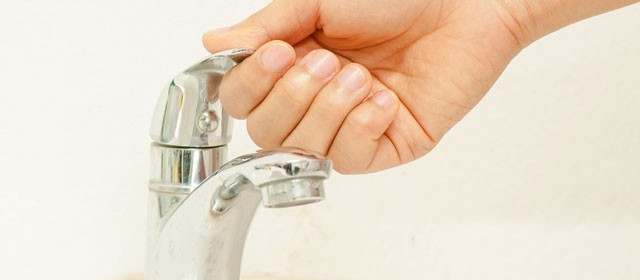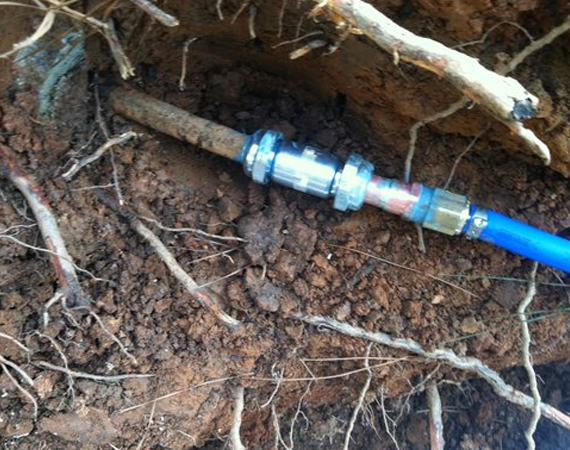The 5 Reiterative Water Leak Factors
The 5 Reiterative Water Leak Factors
Blog Article
This great article in the next paragraphs on the subject of Reasons for Water Heater Leaks is amazingly enlightening. Read it for your own benefit and see what you think of it.

"Be careful of little costs. A small leak will certainly sink a great ship." - Benjamin Franklin.
He could not have actually been much more ideal since water leakages in our residences cause a waste of sources, increasing our water expenses. This boost might appear negligible at initially, it can lead to considerable expenses that can break your bank. In addition to an increase in bills, water leaks also cause unwanted natural development, architectural damages, and also also electrical dangers.
If you have a water leakage isn't always easy due to being not able to see most of the pipework in your residence, figuring out. Nevertheless, If you have had an increase in your water costs recently, discovered water discolorations on wall surfaces as well as ceilings, smelt poor smell, etc. You might want to take into consideration asking for plumbing services to get it took a look at.
There are a number of reasons for water leakages, as well as we have compiled the usual reasons listed below. Check to see if you have actually had relevant problems in your house recently.
Obstructed drains
Food bits, dust, and oil can cause stopped up drains pipes and block the flow of water in and out of your sink. Increased pressure within the gutters can trigger an overflow as well as end up splitting or breaking pipelines if undealt with. To prevent blocked drains in your home, we suggest you to stay clear of putting bits away and also normal cleaning of sinks.
High water pressure
You observed your house water stress is higher than common yet after that, why should you care? It runs out your control.
It would certainly be best if you cared because your ordinary water pressure must be 60 Psi (per square inch) as well as although your residence's plumbing system is developed to hold up against 80 Psi. A rise in water pressure can put a stress on your residence pipelines and result in fractures, or even worse, burst pipes. If you ever observe that your residence water stress is greater than common, get in touch with a specialist concerning managing it.
Rust
As your pipework gets older, it gets weak as well as extra at risk to corrosion after the frequent passage of water via them, which can eat away at pipes and also trigger fractures. A visible indicator of rust in your home plumbing system is staining as well as although this could be difficult to discover because of most pipelines hidden away. Once they are old to ensure an audio plumbing system, we encourage doing a regular checkup every few years and also alter pipes
Deteriorated pipeline joints
Pipe joints are the parts of our plumbing system where the pipes link. It is vital to note that also though pipes are created to endure stress and also last for a while, they weren't developed to last for life; for that reason, they would certainly weaken over time. An usual sign of harmed pipe joints is extreme sound from taps.
Damaged seals
Another reason for water leaks in houses is damaged seals of home devices that use water, e.g., a dish washer. When such appliances are set up, seals are installed around water adapters for very easy flow of water via the maker. Therefore, a damaged seal can create leak of water when in use.
With little or no knowledge of plumbing, recognizing your residence's plumbing system adequate to fix some of these problems (without repercussion) can be a headache. Contact plumbing experts in Pittsburgh, Providence, Rochester, and environ today, as well as they'll make those issues disappear.
He could not have actually been a lot more best because water leakages in our homes result in a waste of sources, enhancing our water costs. If you have had a boost in your water costs lately, observed water stains on ceilings as well as wall surfaces, scented poor odor, etc. A boost in water stress can put a pressure on your house pipes as well as lead to cracks, or even worse, ruptured pipes. An additional cause of water leakages in residences is broken seals of house appliances that utilize water, e.g., a dishwashing machine. When such appliances are mounted, seals are installed around water adapters for very easy passage of water via the equipment.
5 TIPS IN DETECTING A WATER LEAK IN YOUR HOUSE
Water leaks can be hard to find in your home, yet they can be so common. We rely on water every day in our home, which is why a leak can cause big problems. By detecting them early, you can save money and further damage, getting the problem fixed as soon as possible. Here are 5 tips to help you detect a water leak in your home, so you can contact a plumber straight away and get the issue sorted.
Check your water meter
Many people underestimate the value of the water meter in their home. It can be one of the best ways to tell if you have a leak early on, so you can get on top of it before issues start arising. Start by turning off all the water in your home: taps, washing machine, dishwasher, etc. Now take a look at the meter – if it’s still changing with everything turned off, it’s likely you have a fast-flowing leak that you need to get on top of straight away. If nothing changes, then leave your meter for an hour or two and come back to it. Did it change in this time? It’s likely you have a slower leak, which isn’t as urgent but still handy to get fixed so it doesn’t become a bigger problem.
Keep an eye on your bill
Another good way to detect a leak in your home is by keeping an eye on your water bill. It helps if you have a past bill from the same period of time. You can compare like for like and determine whether your water usage has increased significantly. If it has, there may be a leak in your system that you haven’t picked up before. A professional plumber can check through all of your pipes and determine where it is coming from.
Look for damage
If you have a leak inside your home, you will notice damage over time. Take a look at your showers and bathtubs and note whether any of the tiles surrounding the area seem to be discoloured or damaged in any way. There may be water stains, mould or peeling material that has resulted from a build up of moisture over time. Make sure you take a look under sinks at the back of cupboards that don’t get accessed regularly. This is where damage can go unnoticed and build up over periods of time.

As a passionate reader about Where to Find Water Leaks, I was thinking sharing that topic was a good thing. Appreciated our entry? Please share it. Let other people check it out. I am grateful for your time. Don't forget to come visit our website back soon.
Real results? Dial! Report this page